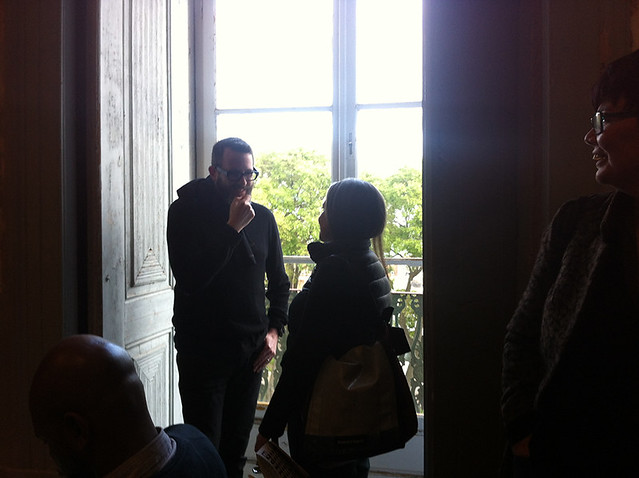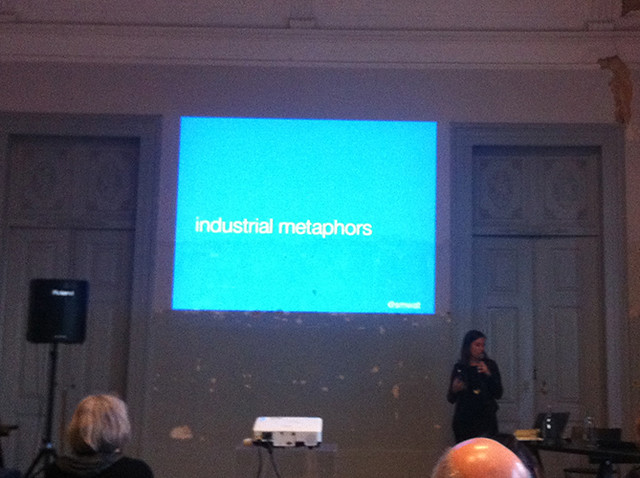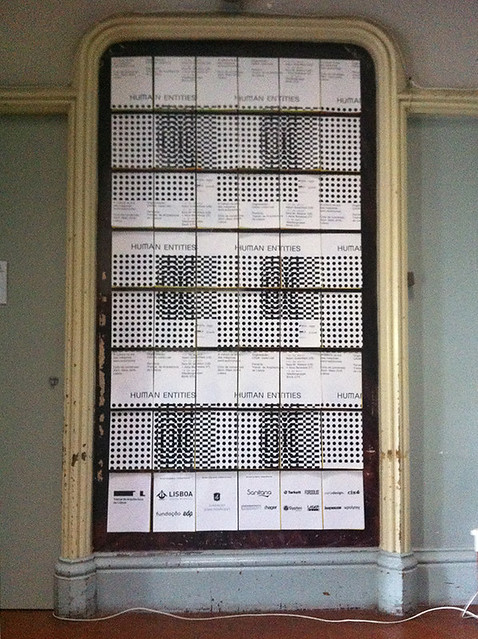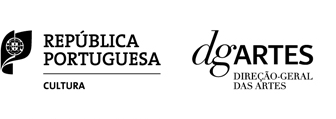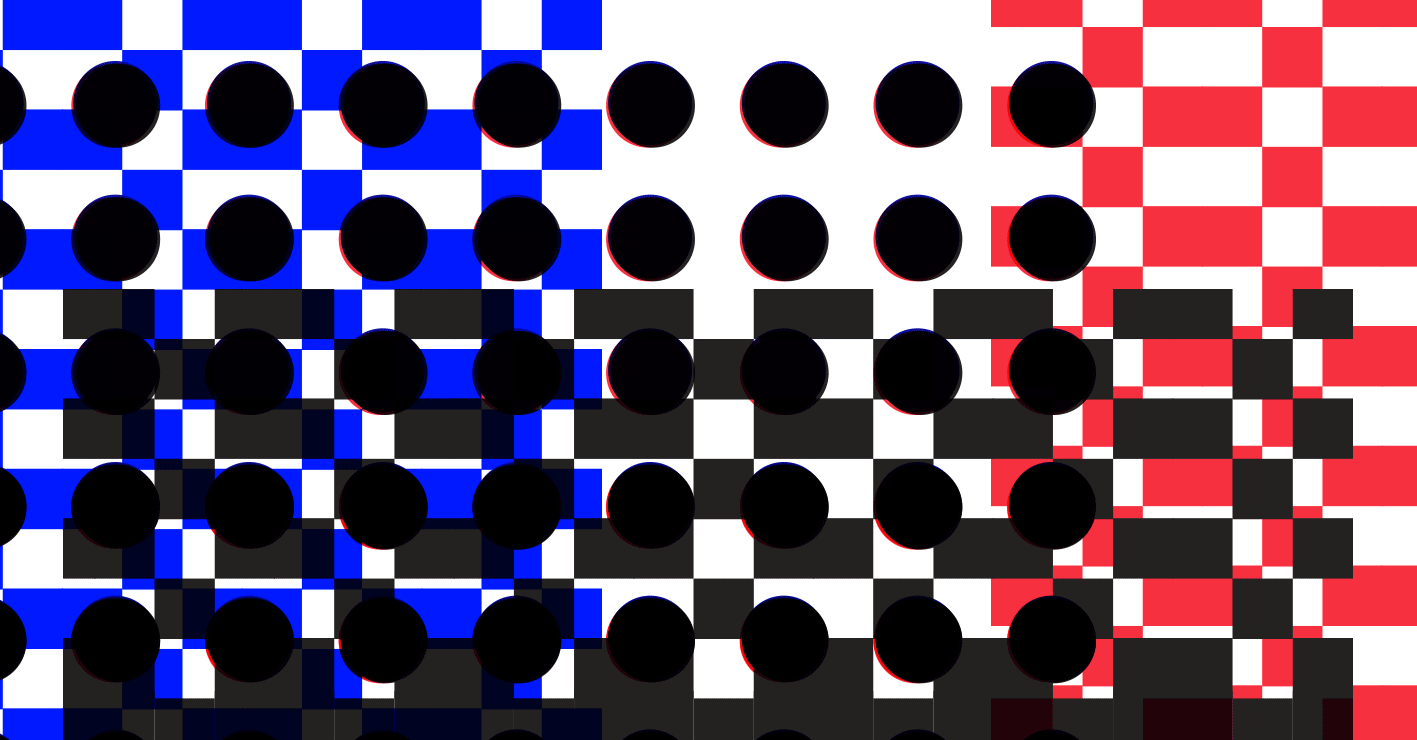
Um ciclo de conversas organizado pelo CADA em parceria com a Trienal de Arquitectura de Lisboa
Abril – maio 2016
Entrada livre, mediante registo
[English below]
Sinopse
Em 2050, 75 por cento da humanidade será urbana. Entretanto os nossos telemóveis, sensores wearable e as casas e cidades que habitamos, colecionam data a uma escala oceânica. A computação em rede torna-se gradualmente ubíqua, e à medida que triliões de ‘coisas’ adquirem conectividade, as fronteiras entre humanos e máquinas desvanecem-se a um ritmo acelerado. Com novas tecnologias a funcionarem cada vez mais na relação com outras tecnologias, a data criada entre elas não apenas prolifera, mas a sua escala absoluta e a complexidade da nossa incorporação com o meio envolvente, apontam para uma relação com o mundo radicalmente nova.
Como imaginamos a vida quotidiana numa cada vez mais densa infoesfera?
Como imaginamos a partilha da nossa vida com máquinas semi-autónomas?
Igualmente inspirados e assustados com este poder transformativo, o CADA espera tornar compreensíveis e concretas algumas das assumções por detrás destas tecnologias.
Human Entities é um ciclo de conversas públicas focado na mudança tecnológica e nos seus impactos – nas formas como a tecnologia e a cultura se influenciam mutuamente.
Concebido para questionar a nossa relação evolutiva com a tecnologia, Human Entities tem um ênfase na troca de pontos de vista e experiências pessoais na procura de novas perspectivas através da participação, pensamento e produção criativa.
CADA – Sofia Oliveira/Jared Hawkey
Quarta-feira 13 de abril, 18.30h
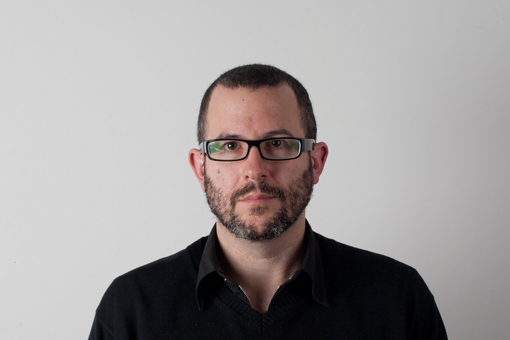
Adam Greenfield (US)
Another City Is Possible: Practices of the Minimum Viable Utopia
Pela primeira vez em Portugal, esta é uma oportunidade única de ouvir Adam Greenfield falar sobre alternativas possíveis ao discurso dominante sobre as smart cities. A conversa será em língua inglesa.
After dispensing with the sham that is the so-called “smart city”, I’ll be discussing commons-based alternatives to the currently dominant conception of technologized urbanity, specifically four aspects involved in the production of networked urban environments from the bottom up: people making data, people making things, people making places and people making networks.
Adam Greenfield é autor do livro Everyware: The dawning age of ubiquitous computing (2006), “Against the smart city” (2013) e The city is here for you to use (a publicar na Verso).
Anteriormente Senior Urban Fellow na LSE Cities (London School of Economics), Adam é agora professor na The Bartlett (University College London) MArch Urban Design cluster “Architectures of Participation” com Usman Haque.
https://speedbird.wordpress.com
A conversa com Adam Greenfield será seguida de uma Q&A moderada por Sandro Mendonça (Professor, ISCTE Business School e colunista do jornal Expresso)
Agradecimentos: Filipa Tomaz, Sandro Mendonça
Imagem: Urbanscale
Quarta-feira 27 de abril, 18.30h
Alice Benessia (IT)
Do we really want and need to be smart? Can we?
Sara M. Watson (US)
Liquid Data: The Power of Seductive Metaphors
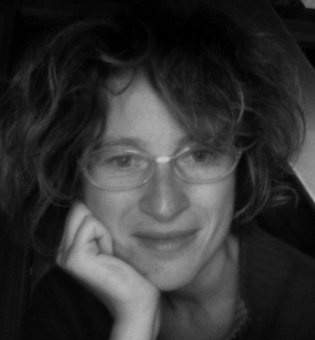
Alice Benessia
Queremos e precisamos mesmo de ser smart? Podemos?
Os imaginários da Internet of Things e suas inerentes contradições
Tecnologias emergentes de informação e comunicação (TIC), tais como a chamada Internet of Things (IoT), redefinem constantemente a textura da nossa cultura, sociedade e estilos de vida, levantando um número de questões epistémicas, normativas e éticas fundamentais, em constante co-evolução. Estas tecnologias são construídas, nomeadas, oferecidas, e em última instância reguladas, de acordo com e através de imaginários tecno-científicos específicos, aqui entendidos como conjuntos de metáforas visuais e verbais que são criados e comunicados quer em literatura especializada quer nos meios de comunicação de massa para o público em geral.
Admiração, poder, controlo e urgência podem ser definidos com os imaginários standards da inovação tecno-científica: os eixos fundamentais que definem o espaço ideal no qual as visões multifacetadas da IoT podem ser projectadas a analisadas em termos de: o que queremos (admiração), o que podemos (poder e controlo) e o que precisamos (urgência) para ser smart. No interior deste espaço ideal vamos analisar juntos uma variedade de media disponível na web produzido por alguns dos actores centrais na revolução da IoT.
Esta exploração conduz a uma reflexão aberta sobre os objectivos e as contradições subjacentes ao desenvolvimento destes sistemas tecnológicos, na relação com o possível declínio de alguns dos atributos fundamentais da integridade e agência humana.
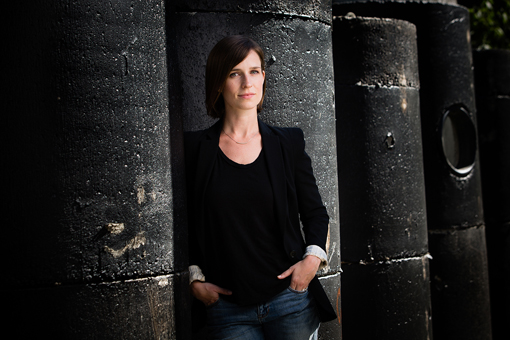
Sara M. Watson
Data líquida: O Poder das Metáforas Sedutoras
Examinando as metáforas dominantes que utilizamos para falar de data, Sara M. Watson disseca a tendência centrada na indústria que está na base do nosso atual entendimento cultural da data. Argumenta que metáforas mais embodied, mais humanas, podem melhor animar a consciência pública e, por sua vez, enformar posições políticas, designs de tecnologia, e modelos de negócio para o futuro. O poder de enquadramentos metafóricos alimenta o seu recente trabalho como research fellow no Tow Center for Digital Journalism (Columbia University), onde examina a retórica e ideologia da tecnologia na imaginação pública. Sara acredita que uma abordagem construtiva na crítica de tecnologia pode contribuir para um mais alargado discurso cultural sobre tecnologia, não apenas comentando nas tecnologias que temos, mas influenciando e definindo as tecnologias que queremos – discutindo e analisando futuros tecnológicos alternativos.
Biografias dos oradores
Alice Benessia tem um PhD em Science Technology and Law, um M.A. em Philosophical Foundations of Physics e um M.F.A em Photography and Related Media. É investigadora de Epistemology of Sustainability no Interdisciplinary Research Institute on Sustainability (IRIS) baseado na Universidade de Torino. É appointed expert no Joint Research Centre da Comissão Europeia. É membro fundador da Italian Association for Sustainability Science. Trabalha também como artista visual e tem dado conferências sobre fotografia e artes visuais em inúmeros workshops nacionais e internacionais. A sua pesquisa interdisciplinar lida com questões epistemológicas no âmbito da arte, ciência e sustentabilidade com um especial interesse na linguagem visual.
http://alicebenessia.it
Sara M. Watson é crítica de tecnologia e Research Fellow no Tow Center for Digital Journalism, da Columbia University. É também afiliada no Berkman Center for Internet and Society da Harvard University. O seu trabalho explora a modo como estamos a aprender a viver com, a compreender, e a interpretar a nossa data pessoal e os algoritmos que enformam as nossas experiências. Investiga de que modo as coorporações, os governos e os indivíduos utilizam data proveniente de sensores wearable, da internet of things e de outros sistemas digitalmente processados.
Está envolvida e influencia o discurso público sobre a mudança tecnológica na cultura popular. Sara envolve-se com as tecnologias emergentes para perceber os seus impactos pessoais na primeira pessoa. Os seus textos já foram publicados na The Atlantic, Al Jazeera America, Wired, Gizmodo, Harvard Business Review, e Slate. Twitta como @smwat
http://www.saramwatson.com
Imagens: http://alicebenessia.it e http://www.saramwatson.com
Quarta-feira 4 de maio, 18.30h
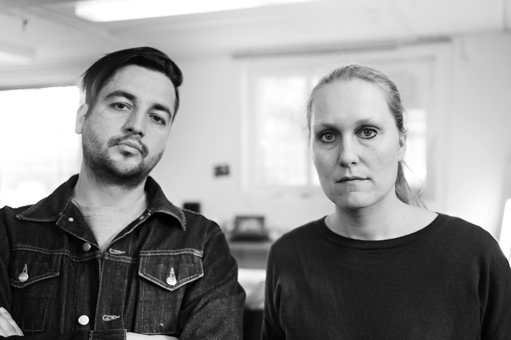
!Mediengruppe Bitnik (CH)
Artist talk: !Mediengruppe Bitnik
O grupo artístico !Mediengruppe Bitnik apresenta trabalhos recentes que exploram a subcultura internet, vigilância e bots. Apresentarão o seu recente trabalho Random Darknet Shopper que conectou directamente galerias de arte com a darknet através de um bot automatizado de compras online. Com um orçamento semanal de 100USD em Bitcoins, o bot foi às compras na deep web onde escolheu aleatoriamente e comprou um item que mandou enviar directamente para o espaço de exposição, criando uma paisagem de bens transaccionados na darknet. Os Bitnik apresentarão também Same Same ─ Watching Algorithms, um bot de software que substitui todas as imagens no site do espaço artístico Cabaret Voltaire com imagens algoritmicamente semelhantes.
!Mediengruppe Bitnik (lê-se o não media group bitnik) vivem e trabalham em Zurique e Londres. São artistas contemporâneos que trabalham sobre e com a internet. A sua prática expande o digital para afectar os espaços físicos, frequentemente introduzindo percas de controlo para desafiar estruturas e mecanismos estabelecidos. Os trabalhos de !Mediengruppe Bitnik formulam questões fundamentais sobre assuntos contemporâneos. Em 2013 o grupo enviou por correio uma encomenda ao fundador da WikiLeaks, Julian Assange na Embaixada do Equador em Londres. A encomenda continha uma câmara que transmitia ao vivo na internet o seu percurso através do sistema de distribuição postal. Descrevem esta peça, Delivery for Mr. Assange, como um SYSTEM_TEST e uma peça de Live Mail Art. O grupo é também conhecido por ter enviado um bot chamado Random Darknet Shopper numa viagem de compras na darknet onde comprou ao acaso objectos como ecstasy e enviou-os directamente para as galerias de arte. !Mediengruppe Bitnik são os artistas artists Carmen Weisskopf e Domagoj Smoljo. Os seus cúmplices são o realizador de cinema e investigador Adnan Hadzi e o repórter Daniel Ryser.
Os seus trabalhos já foram exibidos em shows internacionais incluindo: Shanghai Minsheng 21st Century Museum, City Art Gallery Ljubljana, Kunsthaus Zürich, NiMk Amsterdam, Space Gallery London, Cabaret Voltaire Zurich, Beton7 Athens, Museum Folkwang Essen, Contemporary Art Center Vilnius, Beijing Get It Louder Contemporary Art Biennial, La Gaîté Lyrique Paris, Gallery EDEN 343 São Paulo e na Roaming Biennale Tehran.
Prémios: Swiss Art Award, Migros New Media Jubilee Award, Honorary Mention Prix Ars Electronica.
https://wwwwwwwwwwwwwwwwwwwwww.bitnik.org
Imagem: https://wwwwwwwwwwwwwwwwwwwwww.bitnik.org
ENGLISH
Human Entities 2016: culture in the age of semi-autonomous machines
Public talks organised by CADA in partnership with the Lisbon Architecture Triennal
April – 4 May 2016
Free admission; booking required
Overview
By 2050, 75 per cent of humanity will be urban. Meanwhile our mobile phones, wearable sensors and the connected homes and cites that we inhabit are all collecting data on an oceanic scale. Networked computation is becoming ubiquitous and, as billions of things come online, the boundaries between humans and machines are fast becoming blurred. As new technologies increasingly work in relationship to others, not only does the data between them proliferate but its sheer scale and the complexity of our entanglement with our environment point to a radically new relationship with the world.
How do we imagine daily life shaped by an increasingly dense infosphere? How do we imagine sharing everyday life with semi-autonomous machines?
Inspired and spooked by such transformative times, CADA hopes to make some of the assumptions behind these technologies comprehensible and concrete.
Human Entities is a series of public talks focused on technological change and its impacts – the ways technology and culture shape and influence each other.
Conceived to question our evolving relationship with technology, Human Entities has an emphasis on the exchange of views and personal experiences aiming to search for new perspectives through participation, thought and creative production.
CADA – Sofia Oliveira/Jared Hawkey
Wednesday 13 April, 6.30pm

Adam Greenfield (US)
Another City Is Possible: Practices of the Minimum Viable Utopia
After dispensing with the sham that is the so-called “smart city”, I’ll be discussing commons-based alternatives to the currently dominant conception of technologized urbanity, specifically four aspects involved in the production of networked urban environments from the bottom up: people making data, people making things, people making places and people making networks.
Adam Greenfield is author of Everyware: The dawning age of ubiquitous computing (2006), “Against the smart city” (2013) and The city is here for you to use (forthcoming from Verso).
Previously Senior Urban Fellow at LSE Cities, Adam now co-teaches the Bartlett’s MArch Urban Design cluster “Architectures of Participation” with Usman Haque.
https://speedbird.wordpress.com
Adam’s talk will be followed by a Q&A session moderated by Sandro Mendonça (Professor, ISCTE Business School and columnist at Expresso newspaper)
Thank you Filipa Tomaz and Sandro Mendonça
Photograph: Urbanscale
Wednesday 27 April, 6.30pm
Alice Benessia (IT)
Do we really want and need to be smart? Can we?
Sara M. Watson (US)
Liquid Data: The Power of Seductive Metaphors

Alice Benessia
Do we really want and need to be smart? Can we?
The imaginaries of the Internet of Things and their inherent contradictions
Emergent information and communication technologies (ICT), such as the so-called Internet of Things (IoT), constantly redefine the texture of our culture, society and lifestyle, raising a number of fundamental epistemic, normative and ethical issues, in a constant co-evolution. These technologies are constructed, named, offered, and ultimately regulated, according to and through specific techno-scientific imaginaries, here defined as collections of visual and verbal metaphors that are created and communicated both in the specialized literature and in the mass media for the public at large.
Wonder, power, control and urgency can be defined as standard imaginaries of techno-scientific innovation: the fundamental axes defining an ideal space in which the multifaceted vision of the IoT can be projected and analyzed, in terms of what we want (wonder), we can (power and control) and we need (urgency) to be smart. Within this ideal space, we will examine together a variety media available on the web and produced by some of the key actors of the IoT revolution.
This exploration leads to an open-ended reflection on the underlying aims and contradictions of the ICT enhancement, in relation to the possible decline of some of the fundamental attributes of our integrity and agency.

Sara M. Watson
Liquid Data: The Power of Seductive Metaphors
By examining the dominant metaphors we use to talk about data, Sara M. Watson dissects the industry-centric bias at the core of our cultural understanding of data today. She argues more embodied data metaphors can better animate public consciousness and, in turn, shape policy positions, technology designs, and business models going forward. The power of metaphorical framings feeds into her recent work as a research fellow at the Tow Center for Digital Journalism, examining the rhetoric and ideology of technology on the public imagination. Sara argues that a constructive approach to technology criticism can improve the broader cultural discourse about technology, not only commenting on the technologies we have, but influencing and shaping the technologies we want.
Biographies of speakers
Alice Benessia holds a PhD in Science Technology and Law, an M.A. in the Philosophical Foundations of Physics and an M.F.A in Photography and Related Media. She is a research fellow on Epistemology of Sustainability at the Interdisciplinary Research Institute on Sustainability (IRIS) based at the University of Torino. She has been appointed expert at the Joint Research Centre of the European Commission. She is a founding member of the Italian Association for Sustainability Science. She also works as a visual artist and has lectured on photography and visual arts in numerous national and international participatory workshops. Her interdisciplinary research deals with epistemological issues arising in the framework of art, science and sustainability with special interest in visual language.
http://alicebenessia.it
Sara M. Watson is a technology critic and a Research Fellow at the Tow Center for Digital Journalism. She is also an affiliate with the Berkman Center for Internet and Society at Harvard University. Her work explores how we are learning to live with, understand, and interpret our personal data and the algorithms that shape our experiences. She investigates the ways that corporations, governments, and individuals use data from wearable sensors, the internet of things, and other digitally processed systems.
She engages and influences public discourse on technological change in popular culture. Sara immerses herself in emerging technologies to understand its personal impacts firsthand. Her writing has appeared in The Atlantic, Al Jazeera America, Wired, Gizmodo, Harvard Business Review, and Slate. She tweets @smwat
http://www.saramwatson.com
Photographs: http://alicebenessia.it and http://www.saramwatson.com
Wednesday 4 May, 6.30pm

!Mediengruppe Bitnik (CH)
Artist talk: !Mediengruppe Bitnik
Artists’ group !Mediengruppe Bitnik will present recent works exploring internet subculture, surveillance and bots. They will talk about their recently completed work Random Darknet Shopper which directly connected art spaces with the darknet via an automated online shopping bot. With a weekly budget of $100 in Bitcoins, the bot went shopping on the deep web where it randomly chose and purchased one item and had it mailed directly to the exhibition space, creating a landscape of traded goods from the darknet. Bitnik will also present Same Same – Watching Algorithms, a software bot which replaces all imagery on the website of the art space Cabaret Voltaire with algorithmically similar images.
!Mediengruppe Bitnik (read: not mediengruppe bitnik) live and work in Zurich/London. They are contemporary artists working on and with the internet. Their practice expands from the digital to affect physical spaces, often intentionally introducing a loss of control to challenge established structures and mechanisms. !Mediengruppe Bitnik’s works formulate fundamental questions concerning contemporary issues. In early 2013 !Mediengruppe Bitnik sent a parcel to WikiLeaks founder Julian Assange at the Ecuadorian embassy in London. The parcel contained a camera which broadcast live on the internet its journey through the postal system. They describe Delivery for Mr. Assange as a SYSTEM_TEST and a Live Mail Art Piece. The art group are also known for sending a bot called Random Darknet Shopper on a shopping spree on the darknets where it randomly bought objects like ecstasy and had them sent directly to the gallery space. !Mediengruppe Bitnik are the artists Carmen Weisskopf and Domagoj Smoljo. Their accomplices are the London filmmaker and researcher Adnan Hadzi and the reporter Daniel Ryser.
Their works have been shown internationally including: Shanghai Minsheng 21st Century Museum, City Art Gallery Ljubljana, Kunsthaus Zürich, NiMk Amsterdam, Space Gallery London, Cabaret Voltaire Zurich, Beton7 Athens, Museum Folkwang Essen, Contemporary Art Center Vilnius, Beijing Get It Louder Contemporary Art Biennial, La Gaîté Lyrique Paris, Gallery EDEN 343 São Paulo and the Roaming Biennale Tehran.
They have received awards including: Swiss Art Award, Migros New Media Jubilee Award, Honorary Mention Prix Ars Electronica.
https://wwwwwwwwwwwwwwwwwwwwww.bitnik.org
Photograph: https://wwwwwwwwwwwwwwwwwwwwww.bitnik.org
Location: Lisbon Architecture Triennale headquarters, Campo Santa Clara 142-145, 1100-474 Lisbon, Portugal
Free admission; booking required
Organised by CADA in partnership with the Lisbon Architecture Triennale.
Design comunicação/Communication design: Letra – Marco Balesteros
Estrutura financiada por: | Funded by:

